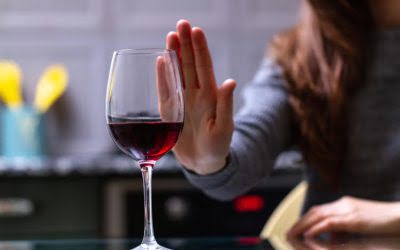Individuals who become high-risk users will start to exhibit behavioral changes that can be signs they need help. A high-risk user may develop severe cravings for substances and compulsive drug-seeking. Changes in the chemical receptors in the brain’s reward center can lead to a condition where casual or regular cycle of addiction use no longer satisfies. Frequent and controlled use changes to chronic misuse and interferes with their daily routines, such as work, caring for children or going to school. The final stage of the cycle – addiction – is marked by a loss of control, compulsive use, and continued use despite harmful consequences.
Neglecting self-care, including not getting enough rest, can lead to emotional relapse. For a holistic approach, therapies that address mental and emotional health are vital. Holistic therapies can help you deal with the underlying issues that may be contributing to your addiction, helping you to heal from the inside out.
Behavior Therapy
Lembke says this balancing see-saw of pleasure and pain made sense in the time of early humans, when we had to constantly search for our basic needs – food, water, shelter. “It’s really an ingenious method to make sure that no matter what we do, that’s pleasurable. It doesn’t last very long and it’s followed by pain so that immediately we’re searching again,” she explains. https://ecosoberhouse.com/ A person’s environment includes various influences, such as family, friends, and economic status. If you believe you or someone you love may be struggling with addiction, let us hear your story and help you determine a path to treatment. While some treatment programs work by isolating participants from the outside world, Kell plans for his program to work differently.
- They are open to learning more about their addiction but will not commit to getting clean.
- Dr. Hoffman has successfully treated hundreds of patients battling addiction.
- For a holistic approach, therapies that address mental and emotional health are vital.
- If you think you or a loved one has an addiction, getting help right away is the best course of action.
- Addicts can stay in contemplation for years without moving to the next stage.
It’s important to note that addiction is a disease and not necessarily due to moral failure. Addictive substances or activities cause an intense, enjoyable feeling, creating a powerful urge to experience those feelings again. Addictive substances rewire the brain to think it needs them for normal functioning, making the user unable to stop. Understanding drug abuse and addiction are necessary for successful management. Drug abuse is the use of an illegal substance or the improper use of a legal substance.
Key Features of Addiction
The fourth addiction stage differs from the abuse stage because the person typically realizes they have a substance problem at this point. Their addictive behaviors become so severe that they cannot function without their substance of choice. A practical step towards breaking the addiction cycle is replacing activities that trigger cravings with behaviors you enjoy. A person in the final stage of breaking the addiction cycle is fully committed to preventing relapse; they keep up with counseling appointments, lifestyle changes, and support meetings. The urge to relapse is not as strong in this stage, and the individual grows confident in their ability to beat the addiction. The brain’s dopamine balance is altered when a person uses drugs or alcohol.
We know it can be unsettling to share your deepest concerns and fears, but we’ll be with you each step of the way. In both inpatient and outpatient rehab, our compassionate and professional staff help patients navigate the recovery experience. Our free email newsletter offers guidance from top addiction specialists, inspiring sobriety stories, and practical recovery tips to help you or a loved one keep coming back and staying sober. In addition to managing a successful family medical practice, Dr. Hoffman is board certified in addiction medicine by the American Osteopathic Academy of Addiction Medicine (AOAAM).
Stage 3: Tolerance
New ways of thinking about how addictions form have the potential to change how we approach treatment. At this stage, the addict becomes heavily dependent on the substance or the activity they are addicted to. This is when it becomes extremely hard to find pleasure without the drug. However, there can be times that a person is dependent on a drug but for medical reasons, this would not be counted as an addiction. There are multiple symptoms that a person will experience during this stage. During the next stage, the person begins to experience more of the negative effects of substance misuse.

This inclusion reflects a consensus of experts from different disciplines and geographical regions around the world. Other than finding external help, you must have an unwavering commitment to your own sobriety and prioritize it above all else. Take the necessary time for self-reflection and identify your own problematic behaviour, bad habits, and triggering people or environments. Likewise, think about what self-care practices or activities bring you joy and fulfillment away from using. It can take time, but the goal is to build a happy, healthy, and stable life in which your addiction has no opportunity to rear its head.